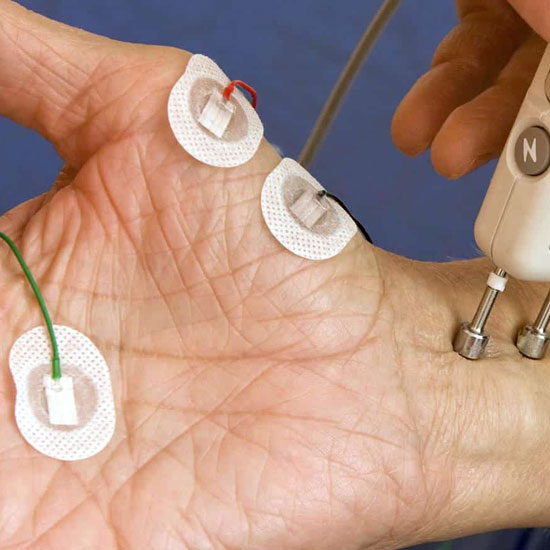Neurophysiology is a branch of physiology and neuroscience that is concerned with the study of the functioning of the nervous system. The primary tools of basic neurophysiological research include electrophysiological recordings, such as patch clamp, voltage clamp, extracellular single-unit recording and recording of local field potentials, as well as some of the methods of calcium imaging, optogenetics, and molecular biology.
Neurophysiology is related to electrophysiology, neuroanatomy, psychology and mathematical neuroscience. It also has medical applications in clinical neurophysiology and clinical neuroscience.



